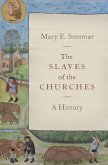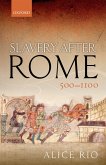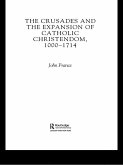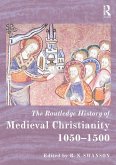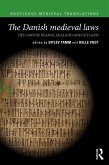In recent years, stories of religious universities and institutions grappling with their slave-owning past have made headlines in the news. People find it shocking that the Church itself could have been involved in such a sordid business. This timely book, the result of many years of research, is a study of the origins of this problem. Mary E. Sommar examines how the church sought to establish norms for slave ownership on the part of ecclesiastical institutions and personnel, and for others' behavior towards such slaves. The story begins in the New Testament era, when the earliest Christian norms were established, and continues up to thirteenth-century establishment of a body of canon law that would persist into the twentieth century. Along with her analysis of the various policies and statutes, Sommar draws on chronicles, letters, and other documents from each of the various historical periods to provide insight into the situations of unfree ecclesiastical dependents. She finds that unfree dependents of the Church actually had less chance of achieving freedom than did the slaves of other masters. The church authorities' duty to preserve the Church's patrimony for the needs of future generations led them to hold on tightly to their unfree human resources. This accessibly written book does not present an apology for the behavior of past Christian leaders, but attempts to learn what they did and to arrive at some understanding of why they made those choices.
Dieser Download kann aus rechtlichen Gründen nur mit Rechnungsadresse in A, B, BG, CY, CZ, D, DK, EW, E, FIN, F, GR, HR, H, IRL, I, LT, L, LR, M, NL, PL, P, R, S, SLO, SK ausgeliefert werden.



